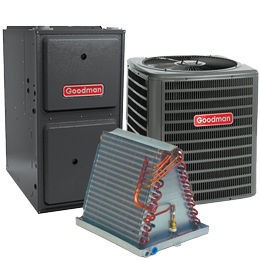Menu
A loud scraping noise that sounds like metal rubbing metal or nails scratching a chalkboard probably means something is wrong with the furnace’s blower wheel.
Here are two common reasons for the loud banging or popping coming from your furnace:
A high-pitched squealing noise is caused by:
This squealing or whining noise isn’t as big of a deal as the others listed above, but it’s best to get it fixed before it causes any further troubles inside your furnace. An annual furnace maintenance visit every fall can prevent the belt from getting too loose or certain parts from being under-lubricated.
There are a variety of things that can go wrong with a furnace, so this is just a sampling of what could be causing a noise and not a complete list. Even if the strange noise is minor right now, that does not mean you shouldn’t get it checked out because it could snowball into a much larger (and therefore costlier) problem later on.
To prevent those costly problems, contact Air Professionals to help diagnose the problem and fix it. All of our work comes with our 100 percent satisfaction guarantee!
There could be a few reasons why your furnace is leaking water, but let’s start with the most likely one: a condensation leak.
High-efficiency furnaces — those with an Annual Fuel Utilization Efficiency (AFUE) rating of 90 percent or higher — have cool exhaust, and as a result, they produce condensation. An easy way to tell if you have a high-efficiency furnace is to look at its vent pipe. If the pipe is white plastic (PVC), you have a high-efficiency furnace.
Furnace condensation
Typically, the condensation from a high-efficiency gas furnace is channeled to a floor drain. Your leak could be a result of the condensation tubing becoming clogged or from breaks in the line. It could also be a result of the floor drain becoming clogged.
A standard-efficiency furnace — which has a metal exhaust pipe — should not have condensation. If it does, it could mean that the flue pipe was incorrectly sized. That could allow the hot exhaust to cool down and condense in the pipe, then drain back to the furnace and leak out.
Faulty furnace secondary heat exchanger
If you don’t have a furnace condensation issue, it’s possible that the secondary heat exchanger is the source of water around your furnace.
Let’s hope not, though. That could be an expensive fix, and it might even require a complete furnace replacement.
RELATED: How Often Should You Have a Furnace Inspection?
Issue with furnace humidifier
You could also have an issue with your humidifier, which could be leaking inside your furnace.
If you’ve had an annual HVAC service check, as you should, this is an unlikely scenario because your service technician would have alerted you to the issue early.
If you have neglected that tune-up, you should call for it now because if this is your problem, the leak could do a lot of internal damage to your furnace.
Internal drain system clog
There is another possibility. If your air conditioning unit is still operating and it shares an internal drain with your furnace, you could have an internal drain system plug, which is sending water to the furnace.
While we can’t diagnose your issue precisely, don’t let this go too much longer. It’s a clear sign that you need to call in professional help.
Leaks can cause huge issues, including damaging parts, flooring and walls, and lead to mold growth. A reputable heating and cooling specialist should be able to quickly diagnose the source of the leak and offer solutions to your water furnace problem.
Do your homework and get more than one estimate before you act, but get started now.
First, our staff will not come to your home if they are sick. We have a procedure to determine the risks of visiting a customer site where the occupants might be sick. We will then take the necessary precautions depending on the environment to ensure both your family and our staff are safe.







Providing excellent customer care for residential heating and air conditioning service and sales in Unionville, Markham and surrounding areas. We Care.
